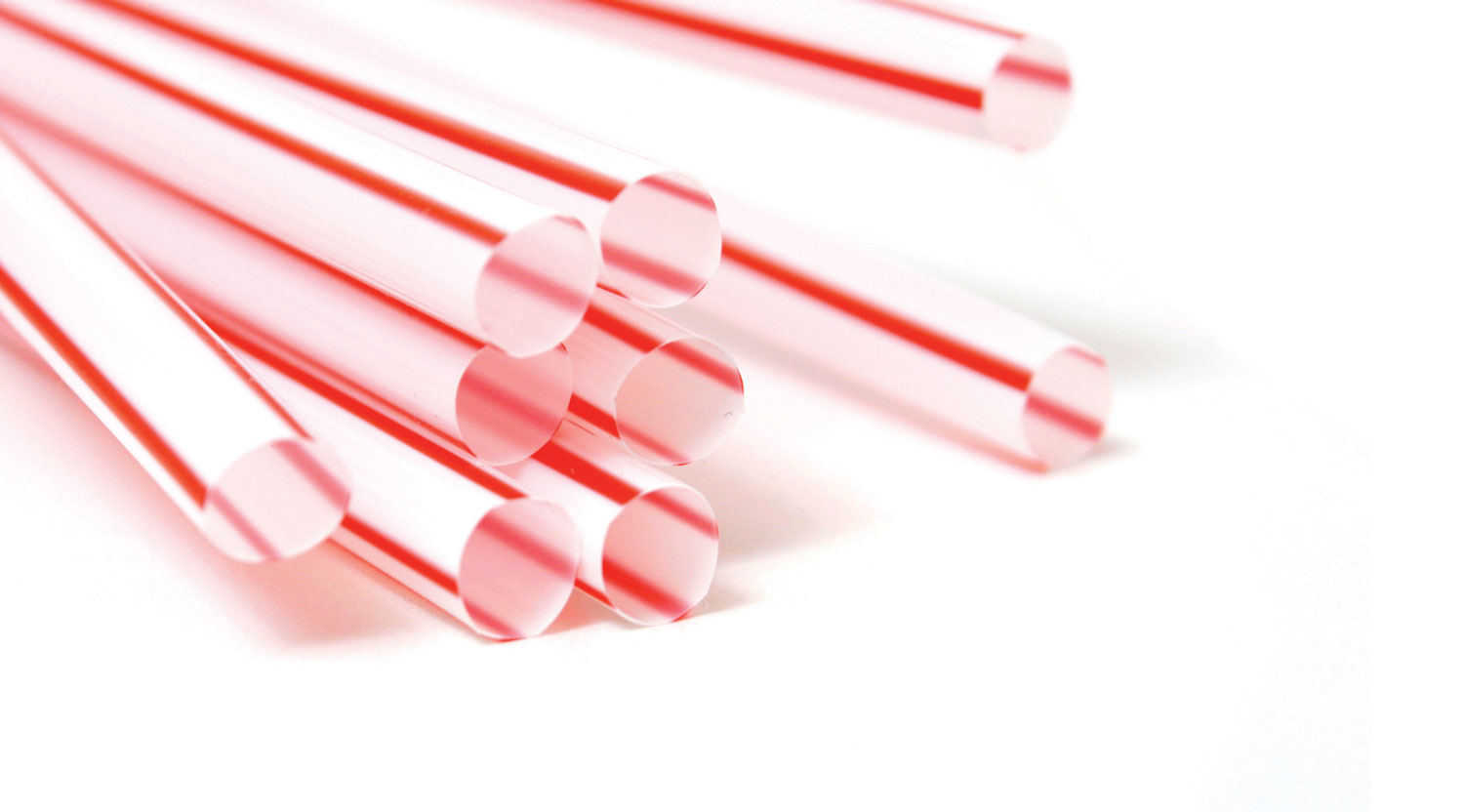Ban the straw
Drinking straws have been discovered by archeologists dating back to early Mesopotamia, when thin tubes made of gold were found attached to cups and covered with jewels in the tombs of perhaps the earliest known civilization. But it wasn’t until the 1970s that single-use plastic straws came to rule the market. In the early 1800s, rye grass was the hip drinking accessory. But in 1888 Marvin C. Stone patented the first modern straw, which was made of paper; later came the idea to coat the straw with wax to help keep its integrity while in use. And here we are hoping to revert to the past.
It’s estimated that Americans use 500 million plastic straws every day. That’s enough straws to wrap around Earth’s circumference 2.5 times. In this country alone, 33% of plastic is used once, then discarded; that’s 30 million tons of plastic every year, with only 8% recycled on average. The majority of that plastic ends up in landfills and in our watershed. Plastic is not biodegradable; if not recycled properly it contaminates the environment, killing wildlife and polluting lands and oceans.
The impact is already catastrophic—but there’s hope.
The “Go Strawless” movement is creating global awareness of this issue. Major metropolitan cities like Seattle and even the state of California have already implemented bans on plastic straws. Closer to home, Fort Myers Beach has executed a no-plastic-straw policy. The plan is to reduce and eventually eliminate the demand for plastic straws.
Steve Phelps, Chef’s Collaborative local leader and chef/owner of Indigenous restaurant, understands the impact of single-use plastic straws and has implemented policies to embrace this movement in his restaurant.
“Plastic straws have a tremendous impact on our oceans. They are so small they can’t get picked through with a lot of recycling programs and most end up in our oceans. As an avid fisherman I have seen the effects of this face-to-face on the water, encountering a sea turtle struggling to take in air about 35 miles offshore,” says Chef Steve, who notified Mote Marine Laboratory of the incident. Luckily they were able to rescue the turtle.
Waterline Resort in AMI, The Chiles Group restaurants, and Tableseide restaurant group have also joined the movement locally and now serve beverages without straws. If one is requested, a biodegradable straw is provided. “Going plastic-straw-free is a small change that has the potential to make a big impact on the planet, and especially our local waterways,” says a representative from Louie’s Modern restaurant. “If the past decade has proven anything, it’s that something that starts out as niche can quickly become a regular practice in the food industry. We are hoping to be one of the restaurants to help propel this trend.”
Next time you are out ask your server, “No straw, please.” We have the capability to make a change and educate others immensely, but we must keep one another accountable. “Locally it’s an easy fix,” says Chef Steve. “Just stop using and buying them.”
And with more local restaurants each week saying goodbye to plastic straws, the Suncoast has a great opportunity to be an example for other forward-thinking cities. And we get it—sometimes you just can’t live without a straw. There are many environmentally friendly straw options available that are either biodegradable or reusable paper, metal, silicone, glass, and bamboo. Let’s make a commitment to one other and to our planet and refuse disposable plastic straws and make every day National Skip the Straw Day. Together anything is possible.





